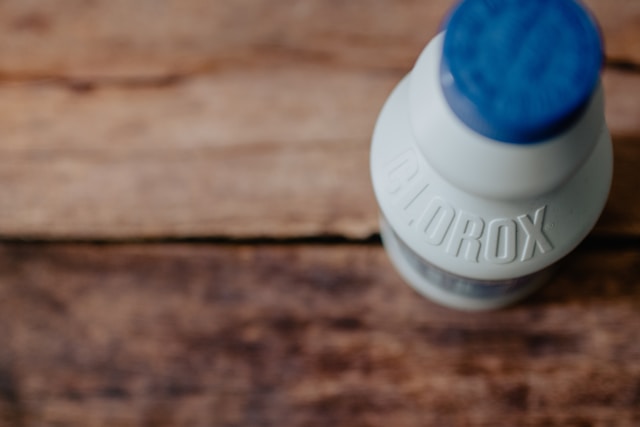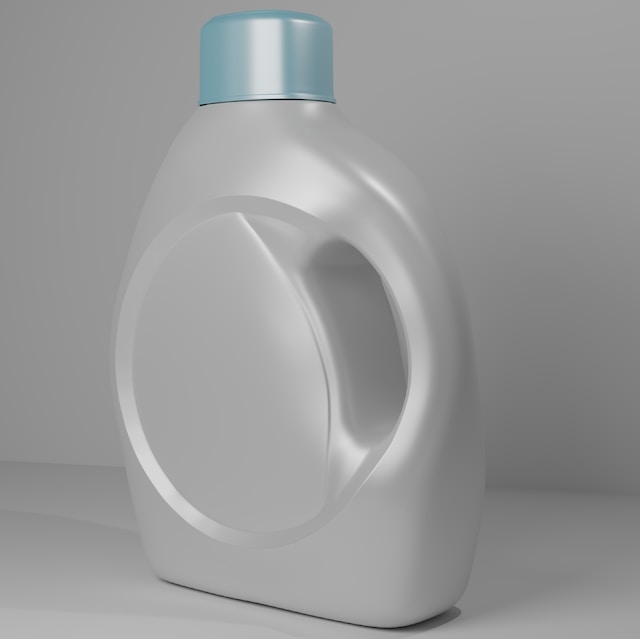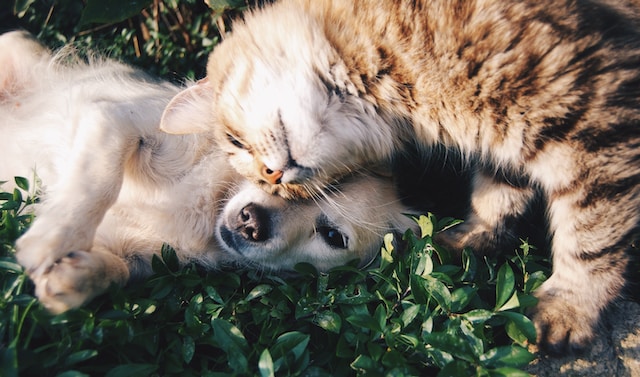
Fleas can be a real headache, especially for those with pets or in areas prone to flea infestations. From itchy pets and hopping pests, a flea infestation isn’t a walk in the park!
Many homeowners turn to DIY solutions to quickly eliminate their pest problems. But before you reach for unconventional products, let’s investigate a common question about flea control: Does bleach kill fleas?
We’re here to give you the lowdown on whether bleach is a reliable solution and how to use it safely to combat these pesky critters.
Understanding the Flea Problem
Before diving into the bleach solution, let’s learn more about what you’re dealing with! We all know fleas as tiny, annoying insects feeding mammals’ blood. Humans aren’t immune to their bites either, as they often hop from pets onto human hosts when looking for another meal.
But these little creatures are not just irritating; they can also transmit diseases. The female flea lays eggs on its host (often your furry friend), which then drop off and hatch into larvae, pupae, and, eventually, adult fleas.
Common flea diseases that impact humans include:
- Plague
- Typhus
- Cat scratch disease
- Tapeworm transmission
Does Bleach Kill Fleas? A Mixed Bag for Flea Control
So, let’s address the big question: does bleach kill fleas? Well, the answer isn’t a straightforward yes or no. Bleach can work under specific conditions, but it’s not a silver bullet. Here’s how it comes into play:
Tackling Fleas on Surfaces
Bleach is a powerful disinfectant and cleaner. When used on non-living surfaces like floors, walls, and pet bedding, it can possibly kill adult fleas and their larvae. Here’s how to do it effectively:
- Create a cleaning solution by mixing one part bleach with ten parts water (1:10 dilution).
- Thoroughly clean and disinfect areas where fleas might hide, such as cracks, crevices, and pet bedding.
- Remember to ventilate the room and let treated surfaces dry completely before allowing pets or humans to be near them.
Dealing with Flea-Infested Laundry
You can also use bleach to clean flea-infested laundry. Washing pet bedding, clothing, and linens with bleach can effectively kill fleas and their eggs. To do this safely:
- Use the same 1:10 bleach-water solution to wash infested items.
- Ensure the bleach is safe for the fabric and the item’s color.
- Wash the items on the hottest water setting recommended for the fabric.
The Limitations of Bleach
So, does bleach kill fleas?

While bleach can work well on adult fleas and their larvae on surfaces, it may not reach flea eggs and pupae hidden deep in carpets, upholstery, or within your pet’s fur. This is a significant drawback when using bleach for flea control.
Eggs and pupae are resilient, so you’ll need additional methods like vacuuming and dedicated flea control products to deal with them.
Additionally, bleach is a highly abrasive substance, often leading to staining, corrosion, and even toxic fumes.
If you decide to use bleach for flea control, remember that safety is a priority. Here are some precautions to ensure everyone, including your pets, stays safe:
- Ensure proper ventilation when using bleach by opening windows and doors to allow fresh air in.
- Always dilute bleach with water as recommended. Using concentrated bleach can be harmful to you and your pets.
- Be vigilant to ensure they don’t ingest bleach or bleach-treated items.
Don’t forget to protect yourself, either. When using bleach, wear the appropriate protective gear, such as gloves and eye protection, to prevent skin and eye irritation.
Does Bleach Kill Fleas? The Bottom Line
While bleach can technically work to remove fleas from your pet’s bedding, we recommend against it.
Bleach is primarily designed for cleaning and disinfecting surfaces and is not specifically formulated for killing fleas. Fleas are resilient parasites, and using bleach alone is unlikely to eliminate them entirely.
Plus, even if bleach successfully kills some fleas on contact, it can leave a residue that may still be toxic to pets and humans. This residue could pose risks if it comes into contact with skin or is ingested.
Consider a Multi-Pronged Approach
Instead of relying on bleach or other household cleaners to cull your flea infestation, try out these options for size:

- Regular Vacuuming: Vacuuming your home frequently can help eliminate flea eggs, larvae, and pupae from carpets and upholstery.
- Flea Treatments for Pets: Consult with your veterinarian to choose the right flea treatments for your pets, such as topical solutions, collars, or oral medications.
- Professional Pest Control: In severe infestations or when home remedies aren’t effective, consider seeking professional pest control services.
For a comprehensive approach to tackling fleas, reach out to us at Innovative Pest Solutions. As longtime Raleigh residents, we know the ins and outs of the city and its pests. If you have a flea infestation on your hands, contact us for help!





